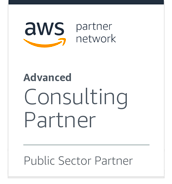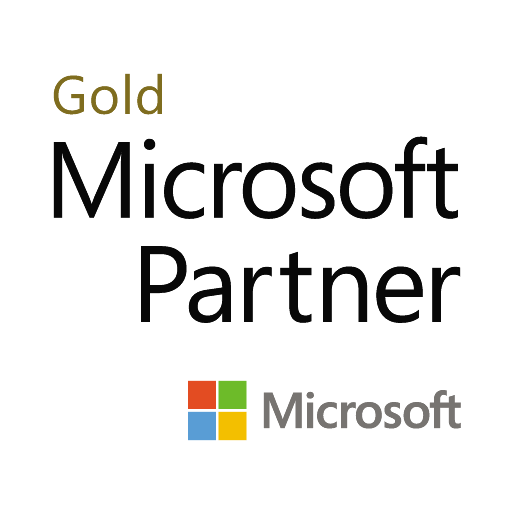The Sarbanes-Oxley Act of 2002 (SOX)
The Sarbanes-Oxley Act of 2002 (SOX) is a United States federal law aimed at improving corporate governance, financial transparency, and accountability in response to accounting scandals such as Enron, WorldCom, and Tyco. SOX compliance is mandatory for publicly traded companies in the United States and imposes stringent requirements on financial reporting, internal controls, and corporate governance. Here's an overview of Sarbanes-Oxley compliance. Takumi Cloud can help you every step of the way.
Help us with SOX!
Financial Reporting
The Sarbanes-Oxley Act (SOX) imposes stringent requirements on financial reporting to enhance transparency, accuracy, and reliability in corporate financial statements. Here are more details about SOX financial reporting requirements:
CEO and CFO Certification
SOX Section 302 mandates that the CEO and CFO of public companies certify the accuracy, completeness, and fairness of financial statements and disclosures within periodic reports submitted to the SEC. They must attest to reviewing both financial statements and internal controls, ensuring they accurately reflect the company's financial status and operational results. Moreover, they are obligated to disclose any significant deficiencies or material weaknesses in internal controls, and report instances of management or employee fraud that could materially affect financial statements.
Internal Control over Financial Reporting
SOX Section 404 mandates that management establish and uphold effective internal control over financial reporting (ICFR) to ensure the reliability of financial reporting and the preparation of financial statements in line with generally accepted accounting principles (GAAP). Management is tasked with annually assessing the effectiveness of ICFR and disclosing any material weaknesses detected during the evaluation. Additionally, external auditors are obligated to attest to and report on the effectiveness of ICFR as part of their audit of the company's financial statements.
Auditor Independence and Oversight (Sections 201, 301, 401):
SOX, in Section 201, restricts auditors from offering specific non-audit services like consulting and advisory services to their audit clients, aiming to preserve independence and objectivity in the audit process. Furthermore, in Section 301, the Act mandates the rotation of audit partners and imposes limitations on employment relationships between auditors and their clients. It also obligates audit committees, as per the same section, to pre-approve all audit and non-audit services provided by external auditors and oversee the external audit process to ensure independence and integrity. Additionally, SOX, under Section 401, bolsters oversight of the auditing profession by establishing the Public Company Accounting Oversight Board (PCAOB) to regulate public accounting firms and set auditing standards.
Enhanced Disclosure Requirements
SOX Section 409 mandates that public companies promptly disclose material changes in their financial condition or results of operations to ensure timely and accurate dissemination of information to investors and the public. These disclosures must be made through various channels such as periodic reports, press releases, and other communication methods, aiming to prevent selective disclosure of material information and uphold fairness and transparency in financial markets.
Internal Control Requirements
The Sarbanes-Oxley Act (SOX) imposes robust internal control requirements to enhance the reliability and integrity of financial reporting and mitigate the risk of financial fraud and misstatements. Here are more details about SOX internal control requirements
Request SOX support todayEstablishment of Internal Controls (Section 404)
SOX Section 404 requires management of publicly traded companies to establish and maintain effective internal control over financial reporting (ICFR). Internal controls, comprising policies, procedures, and processes, aim to provide reasonable assurance regarding the reliability of financial reporting and the preparation of financial statements in line with generally accepted accounting principles (GAAP). It is the responsibility of management to design and implement internal controls customized to the company's particular risks and circumstances, taking into account factors such as the nature of operations, size, complexity, and organizational structure.
Documentation and Monitoring
SOX underscores the significance of documenting internal controls, encompassing control objectives, procedures, evidence of implementation, and testing and assessment results. Management bears the responsibility for maintaining thorough documentation of internal controls, aiding the assessment process, evidencing compliance, and supporting external audit procedures. Moreover, SOX mandates ongoing monitoring and oversight of internal controls to ensure their continued effectiveness and adaptability to changes in the business environment, regulatory mandates, and emerging risks.
Assessment of Internal Controls (Section 404)
SOX mandates that management annually assess the effectiveness of internal control over financial reporting, involving tasks such as identifying control objectives, evaluating control design and operating effectiveness, and testing controls to ensure they function as intended. This assessment process includes documenting and testing key controls to provide reasonable assurance of their effective design and efficient operation in preventing or detecting material misstatements in financial statements. Additionally, management is obligated to identify and report any material weaknesses in internal controls—defined as deficiencies that could reasonably result in a material misstatement in financial statements—and disclose them in the company's annual report filed with the Securities and Exchange Commission (SEC).
External Auditor Attestation (Section 404)
SOX mandates external auditors to attest to and report on the effectiveness of internal control over financial reporting as part of their audit of the company's financial statements. During this process, auditors assess the design and operating effectiveness of key controls, identify deficiencies or weaknesses, and provide assurance regarding the reliability of financial reporting. The auditor's attestation report, which accompanies the company's annual report, offers additional assurance to investors and stakeholders about the effectiveness of internal controls.
Corporate Governance
Corporate governance refers to the system of rules, practices, and processes by which companies are directed, controlled, and managed. The Sarbanes-Oxley Act (SOX) includes provisions aimed at strengthening corporate governance practices to enhance transparency, accountability, and integrity in corporate decision-making. Here are more details about SOX corporate governance requirements
Get help with HITRUSTIndependent Audit Committees (Section 301)
SOX Section 301 mandates publicly traded companies to form independent audit committees comprising outside directors who are separate from management. These committees are tasked with supervising financial reporting, internal controls, and the external audit process to safeguard the integrity and transparency of financial information. Among their responsibilities, audit committees oversee the hiring, evaluation, and supervision of the external auditor, review financial statements and disclosures, and monitor compliance with accounting standards and regulatory mandates.
Financial Expertise on Audit Committees (Section 407)
SOX Section 407 necessitates companies to disclose whether at least one member of the audit committee qualifies as a "financial expert," as defined by the Securities and Exchange Commission (SEC). This designation refers to an individual proficient in accounting or financial reporting, capable of comprehending intricate financial statements, and assessing the sufficiency of internal controls. The presence of a financial expert on the audit committee amplifies its capacity to fulfill oversight duties and furnishes additional assurance regarding the integrity and reliability of financial reporting.
Disclosure Requirements (Section 409)
SOX Section 409 mandates companies to promptly disclose material changes in their financial condition or results of operations to ensure timely and accurate dissemination of information to investors and the public. This disclosure must occur through various channels, including periodic reports, press releases, and other communication means, aimed at preventing selective disclosure of material information and ensuring fairness and transparency in financial markets.
CEO and CFO Certification (Section 302)
SOX Section 302 mandates that the CEO and CFO of public companies certify the accuracy, completeness, and fairness of financial statements and disclosures in periodic reports submitted to the SEC. They must attest to reviewing both financial statements and internal controls, ensuring they accurately represent the company's financial condition and results of operations. Additionally, they are required to disclose any significant deficiencies or material weaknesses in internal controls and report any management or employee fraud that could materially impact financial statements.
Whistleblower Protections (Section 806)
SOX Section 806 contains provisions safeguarding whistleblowers who disclose corporate misconduct or violations of securities laws. These protections prohibit retaliation against whistleblowers who furnish information to law enforcement, regulatory agencies, or internal compliance programs. By safeguarding whistleblowers, these provisions encourage employees to report concerns regarding financial fraud, accounting irregularities, or other misconduct without apprehension of reprisal.
Whistleblower Protections
The Sarbanes-Oxley Act (SOX) includes robust whistleblower protections to encourage individuals to report corporate misconduct, financial fraud, and violations of securities laws without fear of retaliation. Here are more details about SOX whistleblower protections:
Prohibition of Retaliation (Section 806)
SOX Section 806 prohibits retaliation by publicly traded companies, as well as their officers, employees, contractors, and agents, against employees who report suspected violations of securities laws or regulations. This encompasses actions such as termination, demotion, harassment, suspension, or any other adverse employment action taken against whistleblowing employees.
Protected Activities
SOX whistleblower protections extend to employees who provide information, cause information to be provided, or assist in investigations concerning any conduct they reasonably believe violates federal securities laws, rules, or regulations. These protected activities may encompass reporting accounting irregularities, financial fraud, insider trading, securities fraud, shareholder fraud, or other violations of securities laws or regulations.
Internal Reporting Mechanisms
SOX promotes internal reporting of suspected violations by encouraging employees to utilize the company's established compliance, ethics, or whistleblower reporting mechanisms, if available. Internal reporting enables companies to investigate and resolve allegations internally before they escalate to external authorities, fostering a culture of accountability and integrity within the organization.
External Reporting to Regulatory Authorities
If internal reporting fails to effectively address alleged violations, or if employees reasonably believe that internal reporting would be futile or lead to retaliation, SOX permits them to report directly to external regulatory authorities, such as the Securities and Exchange Commission (SEC). External reporting ensures prompt investigation and resolution of serious violations by appropriate regulatory agencies, safeguarding investors and preserving the integrity of financial markets.
Confidentiality Protections
SOX mandates companies to refrain from disclosing the identity of whistleblowers or any information that could reasonably reveal their identity, except as mandated by law or in the context of the company's internal investigation or legal proceedings. These confidentiality provisions serve to shield whistleblowers from retaliation and maintain their anonymity, thereby fostering a climate where reporting wrongdoing is encouraged without fear of reprisal.
Legal Remedies and Enforcement
Whistleblowers subjected to retaliation in violation of SOX have the option to file a complaint with the Occupational Safety and Health Administration (OSHA) within 180 days of the alleged retaliation. If OSHA finds that retaliation occurred, potential remedies may encompass reinstatement, back pay, compensatory damages, attorney's fees, and any other necessary relief to fully restore the affected employee.
Penalties and Enforcement
The Sarbanes-Oxley Act (SOX) establishes significant penalties for non-compliance with its provisions and empowers regulatory authorities to enforce the law through investigations, enforcement actions, and sanctions against violators. Here are more details about SOX penalties and enforcement mechanisms:
Criminal Penalties
SOX imposes severe criminal penalties, including fines and imprisonment, for specific violations of securities laws and regulations. Individuals found guilty of knowingly engaging in fraud, making false statements, or obstructing justice concerning securities fraud or other breaches of SOX could be subject to fines of up to $5 million and imprisonment for up to 20 years.
Civil Penalties
SOX grants the Securities and Exchange Commission (SEC) the authority to levy civil penalties for breaches of securities laws and regulations, encompassing matters related to financial reporting, internal controls, and corporate governance. These civil penalties may involve monetary fines, disgorgement of ill-gotten gains, and injunctions to prevent further violations of securities laws. Companies and individuals held accountable for securities fraud or other SOX violations may face substantial financial penalties imposed by the SEC.
Officer and Director Disqualification
SOX empowers the SEC to pursue officer and director disqualification as a remedy for breaches of securities laws and regulations. Individuals held responsible for securities fraud, accounting irregularities, or other SOX violations may face disqualification from serving as officers or directors of public companies for a predetermined period or permanently.
Regulatory Enforcement
The SEC oversees the enforcement of SOX requirements, encompassing financial reporting, internal controls, corporate governance, and whistleblower protections. Through investigations, examinations, and enforcement actions, the SEC identifies and addresses violations of securities laws and regulations, including those associated with SOX. These enforcement actions may lead to sanctions, penalties, disgorgement of ill-gotten gains, injunctive relief, and other remedial measures aimed at rectifying violations and safeguarding investors.
Auditor Oversight
SOX establishes the Public Company Accounting Oversight Board (PCAOB) to oversee and regulate the auditing profession, particularly public accounting firms auditing publicly traded companies. PCAOB is tasked with setting auditing standards, conducting inspections of audit firms, and enforcing compliance with SOX requirements to uphold the quality and integrity of financial reporting and auditing. Additionally, PCAOB holds the authority to impose sanctions, penalties, and disciplinary actions against audit firms and auditors for violations of auditing standards, independence rules, or other provisions outlined in SOX.
Auditor Oversight
Establishment of the PCAOB
SOX established the Public Company Accounting Oversight Board (PCAOB) as a nonprofit corporation under the oversight of the Securities and Exchange Commission (SEC). The PCAOB's principal responsibility is to regulate public accounting firms that audit publicly traded companies. This includes overseeing the auditing profession, setting auditing standards, conducting inspections of audit firms, and enforcing compliance with SOX requirements. These measures are designed to safeguard investors and bolster the reliability of financial reporting.
Setting Auditing Standards
The PCAOB holds the responsibility for establishing auditing standards governing audits of public companies, covering the conduct of audits, performance of audit procedures, and reporting of audit findings. These standards, aimed at promoting audit quality, independence, objectivity, and transparency, ensure that auditors conduct comprehensive and effective audits, offering assurance regarding the accuracy and reliability of financial statements.
Conducting Inspections
The PCAOB performs routine inspections of registered public accounting firms to evaluate adherence to auditing standards, independence regulations, and other SOX provisions. These inspections concentrate on assessing the quality of audit procedures, the efficacy of internal quality control systems, and compliance with professional standards and regulatory mandates. By pinpointing deficiencies, areas requiring enhancement, and instances of non-compliance, PCAOB inspections empower corrective actions and enable enforcement of compliance through disciplinary measures when warranted.
Enforcing Compliance
The PCAOB is empowered to ensure compliance with auditing standards, independence regulations, and other SOX provisions through multiple avenues, including inspections, investigations, and disciplinary proceedings. Upon identifying deficiencies or violations during these processes, the PCAOB may issue inspection reports, enforcement actions, or sanctions against audit firms and auditors to rectify non-compliance and safeguard investors. Enforcement measures can encompass fines, censures, suspension or revocation of registration, and other disciplinary actions to hold audit firms and auditors accountable for their actions.
Promoting Independence and Objectivity
The PCAOB advances auditor independence and objectivity through the establishment of rules and regulations designed to mitigate conflicts of interest, uphold impartiality, and safeguard the integrity of the audit process. These regulations include prohibitions on audit firms from offering specific non-audit services to their audit clients, such as consulting, advisory, and tax services, aiming to preserve independence and objectivity within the audit relationship.
Our partners
Google Cloud, Amazon AWS, Microsoft Azure, and Kubernetes trust us to implement their technologies in for our clients.



